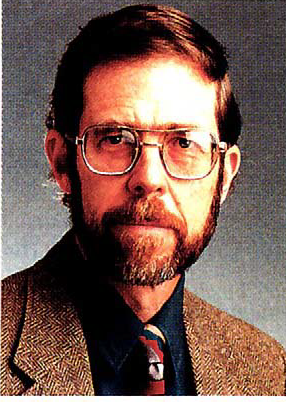
Donald F. McMillen
Henry H. Storch Award in Fuel Chemistry
Sponsored by Exxon Research & Engineering Co.

The understanding of the complex chemistry of coal liquefaction has been advanced considerably by the research of DONALD F. MCMILLEN, senior staff scientist in the Molecular Physics Laboratory at Stanford Research Institute (SRI), Menlo Park, Calif. McMillen has made researchers in the field aware of the complexity of the radical processes involved in bond cleavage of heavy hydrocarbon reducing systems. The chemistry of coal conversion had been dominated by the rule that decomposition of coal structure derives mostly from thermolysis of coal's inherently weak carbon-hydrogen bonds. To Manzer McMillen achieve better liquefaction, researchers primarily worked on finding better radical scavengers so that radical fragments formed by thermolysis would be stabilized before they underwent retrogressive reactions. McMillen's research showed that something more was going on than various donor solvents used as liquefaction agents could explain. He subsequently discovered a new class of hydrogentransfer reactions that shift hydrogen from a radical species to a closed-shell molecule. These reactions can cause cleavage of bonds that once were thought too strong to be broken by thermolysis alone. This category of hydrogen transfer has been given the generic name radical hydrogen transfer. The recognition of strong-bond hydrogenolysis has caused a marked change in the role of the liquefaction medium from one of a passive scavenger that comes into the reaction after thermolysis into one of an active reagent responsible for breaking bonds. Extending this work, McMillen is looking at the role of induced bond scissions during coal pyrolysis. In this scheme, the coal itself acts as a source of radicals and scavengers. This research has led to studies on coal pyrolysis using a unique entrained-flow laser. The impact of McMillen's research has been a paradigm shift in coal science with the recognition that a wide range of potential chemistries are involved in coal conversion. As one of his colleagues writes, "Don McMillen has changed the way fuel scientists think." McMillen received a B.S. degree in chemistry from the University of Notre Dame in 1963 and a Ph.D. degree in organic chemistry from Stanford University in 1967. He has been on the staff of SRI since 1969. OCTOBER 31, 1994 C&EN